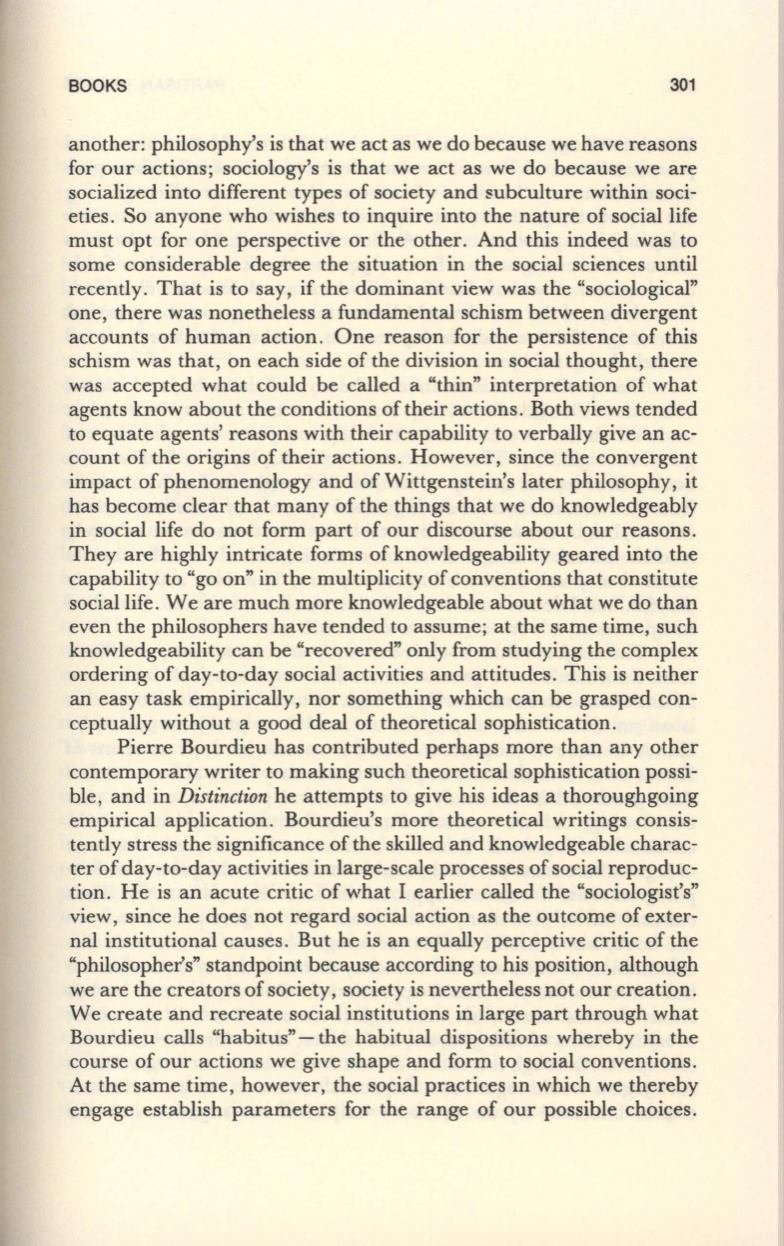
BOOKS
301
another: philosophy's is that we act as we do because we have reasons
for our actions; sociology's is that we act as we do because we are
socialized into different types of society and !'ubculture within soci–
eties. So anyone who wishes to inquire into the nature of social life
must opt for one perspective or the other. And this indeed was to
some considerable degree the situation in the social sciences until
recently. That is to say, if the dominant view was the "sociological"
one, there was nonetheless a fundamental schism between divergent
accounts of human action. One reason for the persistence of this
schism was that, on each side of the division in social thought, there
was accepted what could be called a "thin" interpretation of what
agents know about the conditions of their actions. Both views tended
to equate agents' reasons with their capability to verbally give an ac–
count of the origins of their actions. However, since the convergent
impact of phenomenology and of Wittgenstein's later philosophy, it
has become clear that many of the things that we do knowledgeably
in social life do not form part of our discourse about our reasons .
They are highly intricate forms of knowledgeability geared into the
capability to "go on" in the multiplicity of conventions that constitute
social life. We are much more knowledgeable about what we do than
even the philosophers have tended to assume; at the same time, such
knowledgeability can be "recovered" only from studying the complex
ordering of day-to-day social activities and attitudes. This is neither
an easy task empirically, nor something which can be grasped con–
ceptually without a good deal of theoretical sophistication.
Pierre Bourdieu has contributed perhaps more than any other
contemporary writer to making such theoretical sophistication possi–
ble, and in
Distinction
he attempts to give his ideas a thoroughgoing
empirical application. Bourdieu's more theoretical writings consis–
tently stress the significance of the skilled and knowledgeable charac–
ter of day-to-day activities in large-scale processes of social reproduc–
tion. He is an acute critic of what I earlier called the "sociologist's"
view, since he does not regard social action as the outcome of exter–
nal institutional causes. But he is an equally perceptive critic of the
"philosopher's" standpoint because according to his position, although
we are the creators of society, society is nevertheless not our creation.
We create and recreate social institutions in large part through what
Bourdieu calls "habitus" - the habitual dispositions whereby in the
course of our actions we give shape and form to social conventions .
At the same time, however, the social practices in which we thereby
engage establish parameters for the range of our possible choices.


